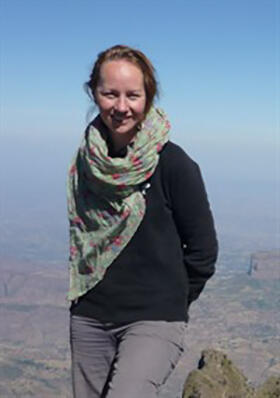
LSTM’s seminar series continued today with a presentation by Dr Emily Adams - Lecturer in Tropical Diagnostics at LSTM’s Department of Parasitology and in a joint appointment of LSTM and University of Warwick (UoW).
Dr Adams works within LSTM’s Centre for Applied Health Research & Delivery (CAHRD) on research activities that encompass the development and evaluation of appropriate diagnostics for tropical diseases. This ranges from point-of-care diagnostics such as rapid-diagnostic-tests (RDTs) to simplified molecular diagnostics such as LAMP. She is particularly interested in the systematic evaluation of diagnostics and their implementation alongside QC.
In her presentation Dr Adams made clear that different diagnostics are appropriate at different time points, settings and interactions with patients. Her research in association with international partners, as well as UoW and LSTM is looking at the effectiveness of different diagnostic tools in relation to leishmaniasis, sleeping sickness and malaria. Improved diagnostics through new technologies is central component of CAHRD which is looking at the development of diagnostics applicable to low-resource settings.
Leishmaniasis is a parasitic disease that is found in South America, Asia, Africa and parts of Southern Europe, caused by infection with Leishmania parasites that are spread by sand flies. The most common forms are cutaneous leishmaniasis (CL), which causes skin sores, and visceral leishmaniasis (VL), which affects several internal organs (usually spleen, liver, and bone marrow). Most methods of diagnosis are confined to laboratory settings, with new technologies driving forward innovative diagnostic tools. New diagnostics are needed that make the diagnostic process less invasive and time consuming for the patient. As Dr Adams explained: “leishmaniasis diagnostics are essential as the treatment is toxic and lengthy.”
Dr Adams and her colleagues have been assessing some of those new diagnostics to determine how effective they are. The Antigen Test, originally developed by LSTM is now being re-designed by FIND and the LAMP tool for leishmaniasis which is a molecular amplification that gives a visual readout in 40 minutes. With each of the new diagnostics developed they must be fully evaluated to understand their relative cost/benefit and potential impact.
The aim of these developments is to make available accurate and robust diagnostics that are affordable in low-resource settings, where many of these diseases are major health problems
As new diagnostics are being developed it remains important that systematic reviews are conducted to inform policy makers and funders about their effectiveness.
Dr Adams is the Honorary Communications Secretary for the British Society for Parasitology, and welcomes any contact from those interested in joining or contributing articles to the society.
Alongside Professor Russell Stothard from LSTM, Dr Adams is organising the British Society of Parasitology Autumn Symposium: Advance in Diagnostics for Infectious Diseases, at Ness Botanic Gardens, Wirral, 25-26 September 2013.